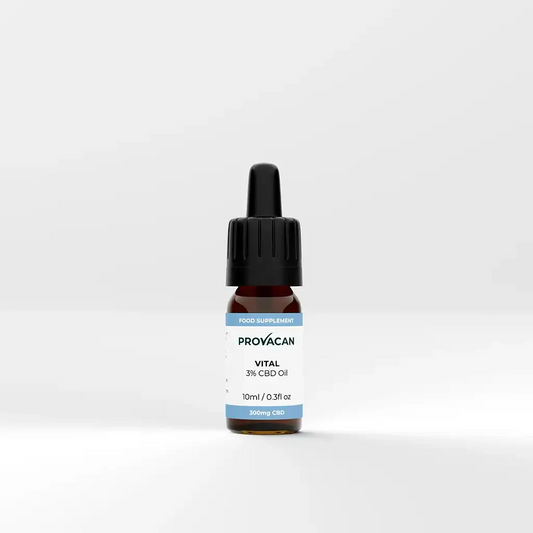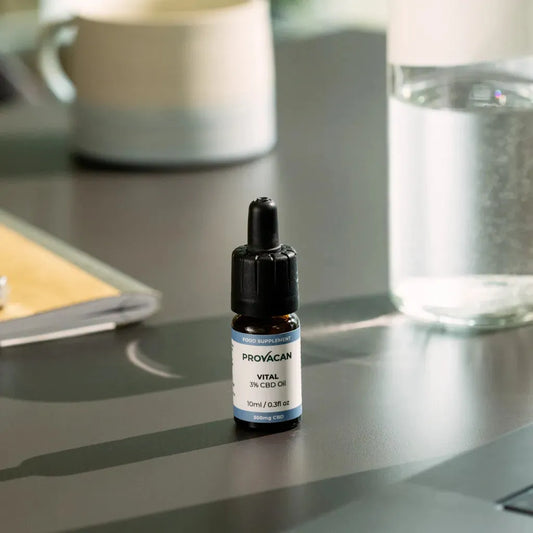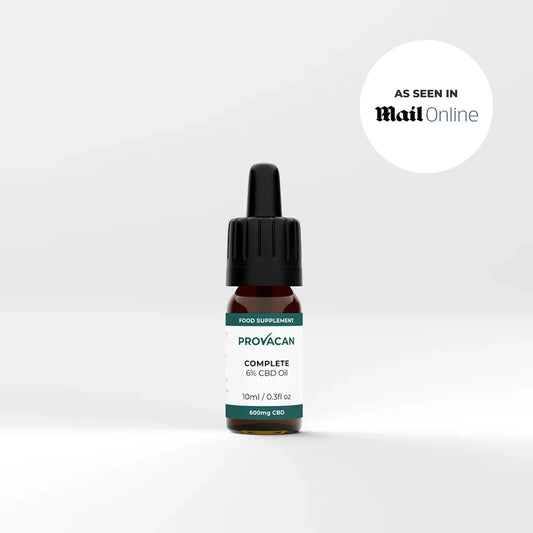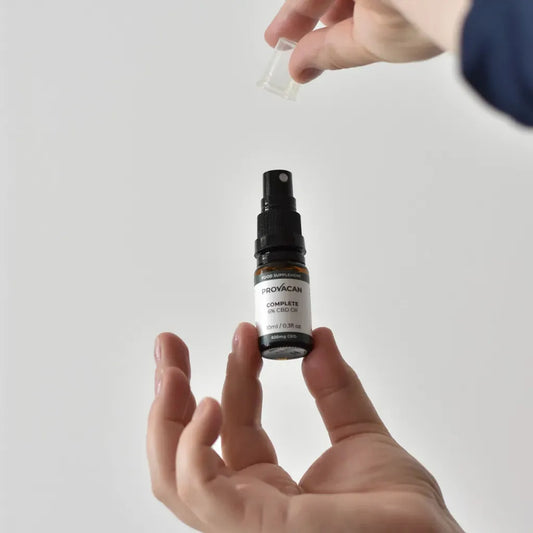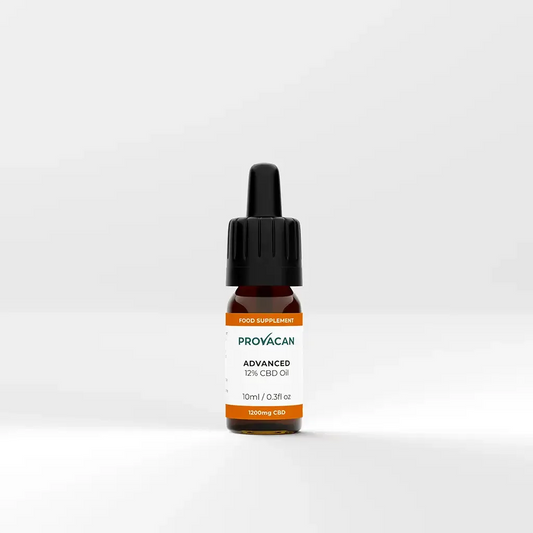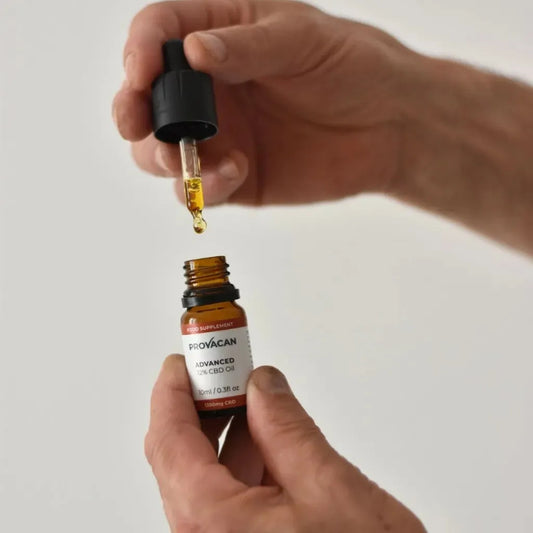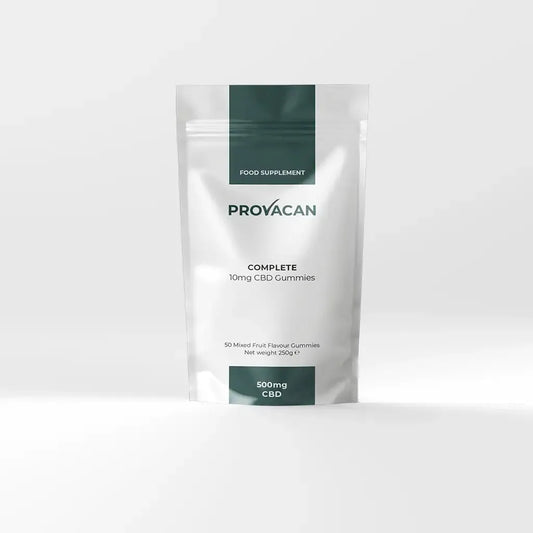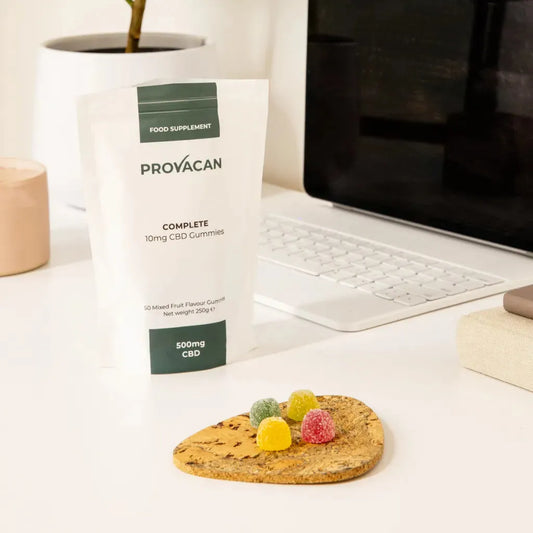In recent years, CBD has gained immense popularity for its potential benefits in managing various health conditions. One such condition that has garnered significant attention is depression. Depression affects millions of people worldwide and can have a debilitating impact on their overall well-being. Many individuals are now turning to CBD as a natural alternative to traditional treatment options. But the question remains, does CBD help with depression?
Benefits of CBD For Depression
Research on the effects of CBD on depression is still in its early stages. However, preliminary studies have shown promising results, suggesting that CBD may offer benefits in alleviating depressive symptoms. One of the potential ways CBD can help with depression is by naturally boosting emotional wellbeing.
Depression often stems from imbalances in the brain's neurotransmitters, such as serotonin and dopamine. CBD has been found to interact with these neurotransmitter systems, potentially influencing mood and emotions positively.
Additionally, CBD may have anti-depressant effects on the brain. It is believed to enhance the availability of serotonin, which is a neurotransmitter responsible for regulating mood. By increasing serotonin levels, CBD may help combat depressive symptoms.
Furthermore, CBD has shown anti-anxiety effects, which can be beneficial for individuals with depression. Anxiety commonly co-occurs with depression, and CBD's calming properties may help alleviate symptoms of both conditions simultaneously.
CBD For Anxiety
CBD's potential to help with anxiety has been extensively studied. The cannabinoid has shown promise in reducing anxiety levels and improving symptoms of anxiety disorders, such as social anxiety disorder and post-traumatic stress disorder (PTSD). By addressing anxiety, CBD may indirectly contribute to managing depression.
Moreover, CBD's effects on anxiety extend beyond just psychological symptoms. Research has indicated that CBD may also have a positive impact on physical symptoms associated with anxiety, such as increased heart rate and sweating. By reducing these physiological responses, CBD can help individuals feel more at ease and less overwhelmed in anxiety-provoking situations.
Furthermore, CBD's potential as an anxiolytic agent has led to its exploration in various populations, including individuals with generalized anxiety disorder (GAD) and obsessive-compulsive disorder (OCD). Preliminary findings suggest that CBD may help reduce anxiety symptoms in these populations, providing a potential alternative or complementary treatment option.
Additionally, CBD's calming effects may extend to sleep disturbances commonly experienced by individuals with anxiety. Research has shown that CBD may improve sleep quality and reduce insomnia, which can significantly impact overall well-being and mental health.
Moreover, CBD's safety profile and non-addictive nature make it an attractive option for individuals seeking natural remedies for anxiety. Unlike certain medications used to treat anxiety, CBD does not carry the risk of dependence or withdrawal symptoms, making it a potentially sustainable long-term solution.
Does CBD oil work? While research on CBD's effects on depression is still in its early stages, the cannabinoid's potential to alleviate depressive symptoms by boosting emotional well-being, enhancing serotonin availability, and reducing anxiety is promising. Moreover, CBD's extensive research on anxiety disorders highlights its potential as an effective anxiolytic agent, addressing both psychological and physiological symptoms. As further research unfolds, CBD may emerge as a valuable therapeutic option for individuals struggling with depression and anxiety.
Side Effects of CBD For Depression
While CBD offers potential benefits for individuals with depression, it is essential to consider the possible side effects. Although CBD is generally well-tolerated, some individuals may experience adverse reactions.
One of the common side effects of CBD is fatigue. Some users report feeling tired or drowsy after taking CBD. It is essential to find the optimal dosage to avoid excessive fatigue.
Another potential side effect is changes in weight. Some users have reported experiencing appetite changes after using CBD. It is crucial to monitor your body's response and consult a healthcare professional if you have concerns.
Additionally, CBD may cause gastrointestinal issues such as diarrhea in some individuals. This side effect is typically mild and subsides with time. However, if you experience persistent digestive problems, it is advisable to discontinue use and consult with a healthcare provider.
Furthermore, it is important to note that CBD can interact with certain medications. If you are currently taking any prescription medications, it is crucial to consult with your healthcare provider before incorporating CBD into your routine. They can provide guidance on potential drug interactions and help you make an informed decision.
Moreover, while CBD is generally considered safe, it is essential to be cautious when purchasing CBD products. The market is flooded with various CBD brands, and not all of them meet the same quality standards. It is recommended to choose products that have undergone third-party testing to ensure their potency and purity.
Additionally, it is worth mentioning that the long-term effects of CBD are still being studied. While initial research suggests that CBD is well-tolerated, more extensive studies are needed to fully understand its potential benefits and risks. It is always wise to stay updated on the latest research and consult with healthcare professionals for personalized advice.
How To Use CBD For Depression
When it comes to using CBD for depression, there are various consumption methods available. The right method for you may depend on personal preference and desired effects. Here are some common CBD products:
CBD Oils
CBD oils are one of the most popular and versatile options. So, how to take CBD oil? They are best consumed by placing a few drops under the tongue for one to two minutes, allowing for fast absorption into the bloodstream. CBD oils come in different strengths, making it easier to find the right dosage for your needs.
CBD Gummies
CBD gummies offer a tasty and convenient way to consume CBD. They are discreet and provide a consistent dosage with each gummy. However, the effects may take longer to kick in compared to other methods.
CBD Capsules
CBD capsules are a convenient option for individuals who prefer precise dosing. They are pre-measured, making it easier to track your CBD intake. Capsules are also tasteless, which can be beneficial for those who dislike the natural flavor of CBD oil.
CBD Balms
CBD balms are topically applied products that can be beneficial for localized relief of discomfort or muscle tension. They are often used for joint pain or skin conditions. However, the effects of CBD balms on depression may be indirect.
CBD Isolate
CBD isolate is pure CBD products that contain no other cannabinoids or terpenes. They are typically in a powdered form and can be mixed with food or beverages. CBD isolate powder offers precise dosing but may lack the entourage effect, which refers to the potential synergistic effects of different cannabis compounds.
Aside from these popular CBD products, there are other innovative options emerging in the market. One such product is CBD-infused beverages. These beverages, ranging from sparkling water to herbal tea, offer a refreshing and enjoyable way to incorporate CBD into your daily routine. They provide a convenient method of consumption, especially for those who are always on the go.
Another exciting development in the CBD industry is the introduction of transdermal patches. These patches, similar to nicotine or birth control patches, deliver a controlled dose of CBD through the skin. They are discreet and can provide long-lasting effects, making them a convenient choice for individuals who prefer a hands-free approach to CBD consumption.
It's important to note that while CBD shows promise in managing depression symptoms, it is not a cure-all. It's always recommended to consult with a healthcare professional before incorporating CBD into your treatment plan. They can provide personalized guidance and help you determine the most suitable CBD product and dosage for your specific needs.
CBD For Mood
Managing mood is a crucial aspect of addressing depression. While CBD may offer potential benefits for mood regulation, it is essential to approach it as part of a holistic lifestyle approach. Alongside usage of CBD for mood, incorporating other self-care practices such as regular exercise, healthy diet, adequate sleep, and therapy can contribute to overall mood improvement.
When it comes to CBD and mood, research suggests that CBD interacts with the endocannabinoid system in the body, which plays a role in regulating mood, among other functions. The endocannabinoid system consists of receptors located throughout the body and brain that help maintain balance, or homeostasis. CBD is believed to interact with these receptors, potentially influencing mood regulation.
Furthermore, studies have shown that CBD may have an impact on the levels of serotonin, a neurotransmitter that plays a crucial role in mood regulation. Serotonin is often referred to as the "happy chemical" because it contributes to feelings of well-being and happiness. By potentially influencing serotonin levels, CBD may have a positive effect on mood.
It is important to note that while CBD shows promise in supporting mood regulation, it is not a cure-all solution for depression or other mood disorders. It should be used in conjunction with other evidence-based treatments, such as therapy or medication, as recommended by a healthcare professional.
Additionally, incorporating CBD into a holistic lifestyle approach for mood management can provide a well-rounded strategy. Regular exercise has been shown to boost mood by releasing endorphins, which are natural mood-boosting chemicals in the brain. A healthy diet, rich in nutrients and antioxidants, can support overall brain health and contribute to a positive mood. Adequate sleep is also crucial for maintaining emotional well-being, as lack of sleep can negatively impact mood and cognitive function.
Therapy, whether individual or group sessions, can provide a safe space to explore and address underlying issues contributing to mood imbalances. Combining CBD usage with therapy can potentially enhance the therapeutic process by promoting relaxation and reducing anxiety, allowing individuals to engage more fully in the therapeutic work.
In conclusion, while CBD may offer potential benefits for mood regulation, it is important to approach it as part of a holistic lifestyle approach. Incorporating other self-care practices such as regular exercise, healthy diet, adequate sleep, and therapy can contribute to overall mood improvement. CBD should be used in conjunction with other evidence-based treatments, as recommended by a healthcare professional, to effectively manage mood disorders.
Buy CBD
If you're considering trying CBD for depression, it is crucial to purchase high-quality products from reputable brands. Look for CBD products that undergo third-party testing to ensure their quality, purity, and potency. Additionally, consult with a healthcare professional to determine the appropriate CBD dosage and discuss any potential drug interactions.
In conclusion, while research on CBD for depression is still ongoing, preliminary evidence suggests that CBD may offer benefits in managing depressive symptoms. It may naturally boost emotional well-being, have anti-depressant and anti-anxiety effects, and indirectly contribute to mood regulation. However, it is essential to be aware of potential side effects and choose the right CBD products. Remember to consult with a healthcare professional before incorporating CBD into your depression management plan.


